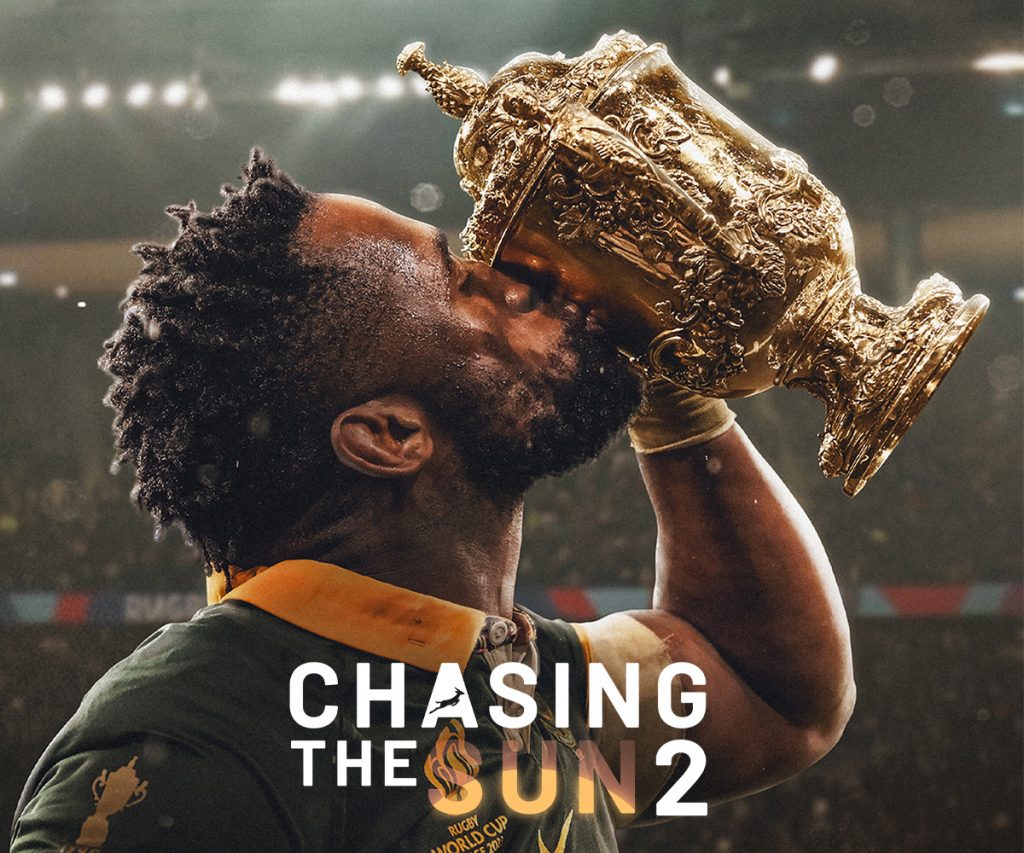You forget just how desperate the state of Springbok rugby was a mere 18 months before the 2019 World Cup in Japan. It would end so dramatically and with such triumph, sure, but it began at rock bottom. Losing 57-nil to the All Blacks in 2017 was the nadir of Alistair Coetsee’s ill-fated reign as Springbok coach. In came Rassie Erasmus and his partner-in-genius, Jacques Nienabr.
They would go on to revolutionise South African rugby, turn around the fortunes of a top-tier but depressed team, scandalise world rugby with the innovative bomb squad of replacement forwards, and win a World Cup. Along the way, Erasmus installed Siya Kolisi as the first black Springbok captain, and not-so-quietly transformed rugby, infusing it with diversity and humility.
“The main thing must stay the main thing,” Erasmus is seen saying over and over, as much as his “fuck them up physically” mantra.
Chasing the Sun 1 is better – here’s why
Chasing the Sun 1 is not just the story of winning the World Cup, remarkable as it was in the time since Erasmus arrived. It is the story of the phoenix-like rejuvenation of the proud Springboks into the current superpower that they are. But it follows the heartbreak of defeats, through Kolisi’s first game as captain (ultimately won, but only after trailing England 22-3 after 16 minutes) and the first Rugby Championship win in a decade. Erasmus gave the Springboks their mojo back and the country a reason to smile.
Being an international rugby player is not pressure, Erasmus lectures his charges. A grandmother getting up early to sell food at the side of the road to support her family is pressure, he tells them.
Watch Chasing the Sun 2 on Showmax for R19/week – click here to learn more
It’s a reminder that stung middle-class households when it aired, just as much. Life is hard, but someone has always had it worse. Despite that, that boy from Zwide or Kylemore or the deep rural Eastern Cape can find themselves in Japan, playing for their national team. Kolisi, Herschel Jantjies, and Makazola Mapimpi respectively came from tiny communities, wracked with poverty, and found themselves playing on the greatest stage.
Erasmus’s message is as profound for those athletes as it is for the rest of us.
In the final, he admonishes the players, “You don’t have the right” to make it about themselves. They were playing in the final for their country, which needed a pick-me-up.
This is for South Africa, he stresses, it’s not about you. And it worked.
I’m watching this excellent documentary on Showmax with my rugby-obsessed six-year-old son – for the second time in a week. And I’m not hating it.
Why is Chasing the Sun 1 better than this year’s successor?
I think thematically it tells a much deeper, longer story. The second season does as excellent a job of telling the tense two-month World Cup campaign, starting with the much-discussed 7-1 forwards-heavy replacement bench. The final three games, won by a single point, are relieved with as much heart-pounding tension as they were to watch.
Read More: What2Watch: House of the Dragon
But season two is the story of defence, or an unexpectedly innovative, free-running Springbok game plan, of Manie Libbok’s sensational no-look kick pass, of Hande Pollard’s ice-in-his-veins placekicking, or Cheslin Koble’s charge down, Damian Willemse calling a scrum from a mark, Ox Niche earning a penalty whenever he came on, Deon Fourie’s dramatic debut and 77-minute final at hooker, and Pieter-Steph du Toit’s 28 bone-crunching tackles against the All Blacks.
Season one was the rebirth and the relearning of belief – messages that still resonate. Thematically, I think this gives it much greater scope. It emerges as much more than a rugby documentary, showing the extraordinary impact of sport, and sportsmen overcoming personal odds, as an example of how such diversity can make us better. It isn’t just a rugby show, it’s a reminder that our country has overcome many other difficult things before, if only we can “keep the main thing the main thing”.




